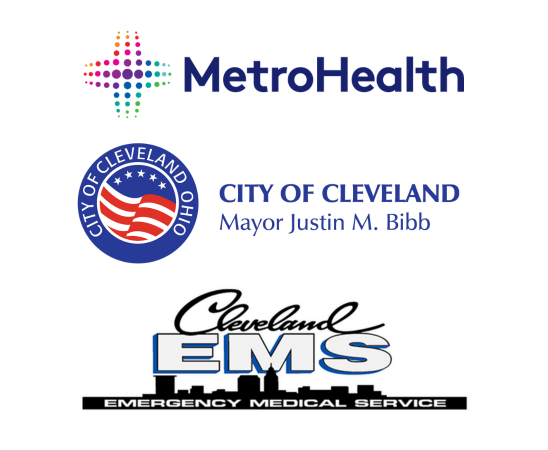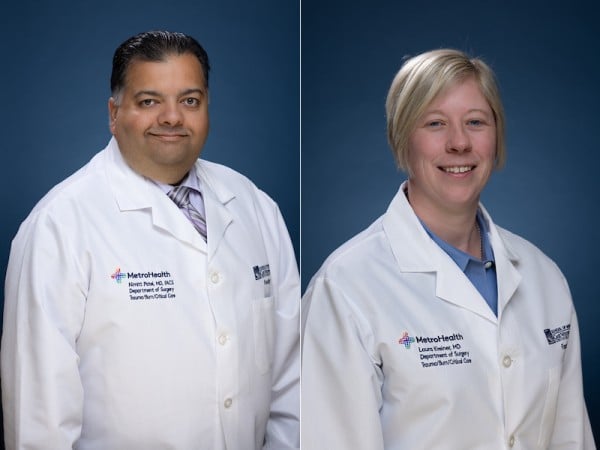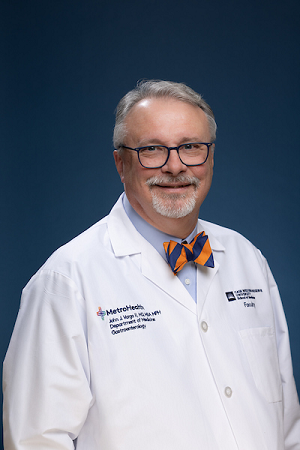MetroHealth and Cleveland EMS Make Blood Transfusions Part of On-Scene Care
Published on 06/18/2025
The MetroHealth System has partnered with Cleveland Emergency Medical Services (EMS) to train the division’s paramedics to administer whole blood transfusions at trauma scenes, making Cleveland the first major city in Ohio to implement the life-saving practice.

Starting Wednesday, June 4, Cleveland EMS was equipped with low titer O positive whole blood from MetroHealth’s blood bank and ready to act immediately to help stabilize trauma patients who are losing blood, potentially decreasing mortality rates by as much as 75% when used on patients that need it most.
“This will have a significant, positive impact on the care of critical trauma patients in the city,” said Craig Bates, MD, EMS Division Director, MetroHealth’s Department of Emergency Medicine. “We will be starting out by targeting an underserved population and bringing an advanced intervention that will save lives. This is yet another way that MetroHealth delivers on our mission to better the health of the community, especially those in vulnerable populations when they need it most.”
Severe bleeding is the leading cause of preventable death among trauma patients. The amount of time it takes to replenish lost blood through transfusion is often the difference between life and death. Minutes count.
A study published in November of 2024 in the Journal of Trauma and Acute Care Surgery found that the rate of death increased by 11% with each minute that passed between an injury and blood administration. Prehospital blood transfusion programs resulted in patients receiving blood as much as 19 minutes sooner than if they had to wait to arrive at a hospital emergency department, making them four times more likely to survive.
Cleveland EMS Commissioner Orlando Wheeler has been eager to bring these outcomes to Cleveland, and he advocated for Ohio to add whole blood transfusion to its scope of practice for paramedics. When the statewide change was approved last year, Wheeler’s first call was to the experts in MetroHealth’s Level 1 Adult Trauma Center and Metro Life Flight.
“The primary focus for me – and for Cleveland Mayor Justin Bibb and Public Safety Director Wayne Drummond as well – is to reduce trauma-related mortality in the City of Cleveland,” Wheeler said. “So, when it was time to develop this program, I got in touch with Dr. Bates and David Yarmesch (EMS Coordinator) because the hospital system in Northeast Ohio that addresses trauma in its full totality is MetroHealth.”
Wheeler noted MetroHealth’s continued care for trauma patients at the most critical moments and beyond through the nationally recognized Trauma Recovery Center and the top-ranked Rehabilitation Institute.
With ongoing support from Cleveland EMS Medical Director Thomas Collins, MD, FACEP, the team immediately went to work developing the program. Over the last several weeks, Cleveland EMS personnel trained at MetroHealth’s Simulation Institute to administer whole blood transfusions in the field.
The program launched in Cleveland’s Southeast Side neighborhoods, which lack quick access to a hospital and experience some of the city’s highest rates of penetrating trauma, including shootings, stabbings and car accidents. The rest of the city will be added in late June or early July.
Initially, prehospital whole blood transfusions will be limited to trauma patients who meet certain criteria, but Dr. Bates said the program may be expanded to benefit patients experiencing other medical indications that cause life-threatening hemorrhage.
The EMS captains on duty for every shift will carry whole blood in a Metro Life Flight cooler installed in their vehicles. If an EMS crew encounters a patient in need of blood, they will call for the on-duty Captain to respond to the scene – or meet the ambulance at a location along the route to the Emergency Department – to deliver the whole blood. When the blood is used, it immediately will be restocked from the MetroHealth blood bank supply. Cleveland EMS will perform the whole blood transfusions on eligible patients regardless of hospital destination.
“We can’t always stop violence,” Wheeler said. “But what we can do is increase people’s chances of surviving."
Media Contact
Timothy Magaw
Director, System Communications
tmagaw@metrohealth.org
330-606-6241
About The MetroHealth System
Founded in 1837, MetroHealth is leading the way to a healthier you and a healthier community through service, teaching, discovery, and teamwork. Cuyahoga County’s public, safety-net hospital system, MetroHealth meets people where they are, providing care through five hospitals, four emergency departments and more than a dozen health centers. For more information, visit metrohealth.org.






